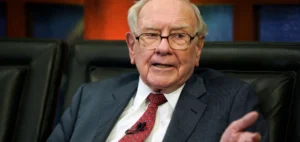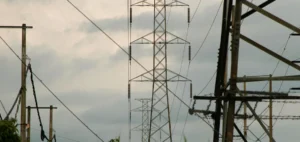The Parliament approved Wednesday the appointment of Luc Rémont, proposed by the Elysee to take the head of EDF, learned the AFP of parliamentary sources.
Following a vote, the Economic Affairs Committees of the National Assembly and the Senate “issued a favorable opinion on the appointment of Mr. Luc Rémont as CEO of EDF,” according to a press release from the National Assembly.
Luc Rémont, a polytechnician and engineer graduated from ENSTA, worked from 2002 to 2007 in various ministerial offices in France. In 2005, as Deputy Director at the Ministry of Finance, he participated in the privatization of GDF and the opening of EDF’s capital. In 2007, he became director of the investment bank Merrill Lynch, until 2009.
During 2014, he participated in General Electric’s takeover of the energy part of Alstom, a manufacturer of nuclear turbines. This activity will be purchased by EDF in 2022. In addition, he is the president of the group of companies in the French electro-digital sector (GIMELEC).
The future boss of EDF, Luc Rémont, endorsed Wednesday by the Parliament, unveiled before senators and deputies his roadmap to overcome the “serious crisis” that the giant electric company is going through, weakened by a nuclear production at its lowest and a huge debt.
Following a vote, the Economic Affairs Committees of the National Assembly and the Senate “issued a favorable opinion on the appointment of Mr. Luc Rémont as CEO of EDF,” announced the National Assembly in a press release.
It received 32 favorable votes out of 61 expressed in the National Assembly, and 26 favorable votes out of 45 expressed in the Senate.
In order to be validated, the candidacy of Mr. Rémont, proposed by the Elysée, did not have to be opposed by more than 3/5ths of the members of the two commissions combined.
As part of the nomination process, the 53-year-old current head of Schneider Electric’s international operations took part in a long, sometimes electric, four-hour hearing before the MEPs, preceded by a more cordial interview with the
senators.
To set the tense scene, the rapporteur LR in the Assembly Anne-Laure Blin had immediately issued an unfavorable opinion to his appointment.
Mr. Rémont is to succeed Jean-Bernard Lévy, who had been at the helm of EDF since 2014. His early departure was announced this summer at the same time as the renationalization of EDF.
Once his appointment has been formally announced by decree, Mr. Rémont will have some daunting tasks ahead of him.
The context is “critical in the short term”, Luc Rémont acknowledged before the senators.
“In this context of energy crisis, EDF itself is going through a serious crisis, both technical and industrial, which increases the tension on the energy supply,” he said.
The urgency is known: half of the French nuclear fleet is unavailable due to scheduled maintenance or corrosion problems. The challenge will be to restart enough reactors to cope with the peaks of consumption in the winter.
“From the first hours of (his) mandate”, Mr. Rémont plans to devote himself “totally” to “keep the commitments of the company for the resumption of the production of the shutdown reactors”, he assured the senators.
“My objective is to keep the request expressed by RTE (the manager of the electricity transmission system) of a nuclear production between 38 and 40 GW on December 1” and “between 45 and 50 GW on January 1”, he detailed in written answers to parliamentarians which AFP has seen.
– Colossal debt –
Beyond the winter, the future strong man of EDF presented his priorities in the medium and long term, citing the revival of a nuclear program wanted by the government (6 new reactors, and small reactors of the SMR type), hydroelectric investment, “a leading role in renewables” and “the development and adaptation of networks to a more decentralized electricity”, especially through self-consumption, according to his written answers.
The financial situation of EDF, whose debt could reach 60 billion euros at the end of the year, requires “vigilance in the short term so as not to have to reduce investments and compromise the future,” he said.
If this situation “should improve” with the restarting of reactors, Mr. Rémont deemed necessary a “long-term visibility” on the regulatory measures intended to limit the increase in the price of electricity for customers for whom EDF bears the majority of the costs.
According to him, the regulated access to historical nuclear electricity (Arenh), which “induces an under-remuneration” of the nuclear activity of EDF.
He also called for a “profound” reform of the rules of the European market, deeming “indispensable” the decoupling of gas and electricity prices.
At question time, the candidate was grilled on his role played in the controversial sale in 2014 of the energy branch Alstom to General Electric when he was advising Alstom as a banker to Bank of America Merrill Lynch, a “forfeit against the national interest,” launched the MP Matthias Tavel of the group Nupes-LFI, which announced to vote against, as did the RN.
It was “the only possible solution to ensure the future of these activities,” according to Rémont.
Another subject of friction is the fear of a dismantling with a separation between the historical nuclear activity and the renewables. There will be “a diversified production and not in the all nuclear”, he replied.






















